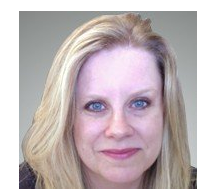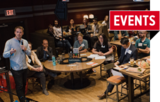
Why it’s Good to Be Grateful Beyond Thanksgiving
Is “gratitude” the new self-help buzzword of the moment?
By Deb Cummings
The importance of gratitude goes far beyond Tom Turkey and pumpkin pie.
Sure, a few of us may have given formal thanks for something a few days ago, but there’s a growing body of research that has placed being “grateful” on the same scale as mindfulness, meditation, yoga and general wellness. As with these other practices, gratitude has been commodified, parcelled up and marketed. And the Hallmark moments around this emotion, or practice, are most definitely Thanksgiving, Christmas and Easter.
The interest, however, toward “gratitude” extends far beyond the holiday period (there are hundreds and hundreds of gratitude apps out there) and a recent Amazon search yielded more than 22,000 books and audio guides on gratefulness. Just a few bestsellers include Gratitude by Oliver Sacks; Words of Gratitude for Mind, Body, and Soul by Robert Emmons and Joanna Hill; The Happiness Project One-Sentence Journal; A Five-Year Record by Gretchen Rubin; and Rhonda Byrne’s The Secret Gratitude Book. And then there’s psychologist-author Dr. Brené Brown’s empire.
“It’s really nothing new,” explains Werklund School of Education Associate Dean Dr. Amy Burns, MA’01, PhD’08, whose area of research is feminist leadership, policy and governance. “People have been living gratefully for centuries.”
Many say, in fact, that gratitude is perhaps the most universal religious sentiment and the cornerstone of most world religions. After all, what religion doesn’t prize a grateful heart?
That may certainly be true, but religious studies instructor Dr. Craig Ginn, PhD, believes that gratitude is “certainly not the monopoly of religion.” In fact, he adds that the gratitude movement “may well be more altruistic considering that the gratitude being offered is offered without the incentive to gain religious merit.”
Having spent years developing a certificate program for aspiring leaders and school-based experts, Burns now believes that, if organizations want to build a sustainable culture, that culture needs to be rooted in collective care and compassion. This research actually led Burns to develop a four-course certificate program dubbed Leading with Heart, but she is quick to point out that this era of compassion and gratitude is relatively new to her. “If you had met me a decade ago, I would have said, ‘Suck it up and let’s get on with it,’” she says. “That was my definition of a strengths-based approach to wellness.”

Werklund School of Education Associate Dean Dr. Amy Burns, MA’01, PhD’08
These days, Burns gets up before the rest of her family each morning and spends five minutes in quiet meditation when she gives thanks to, “things that make me strong, such as family, the opportunities to impact education, my extended family and community, and so forth.
“Personally, meditation has never worked for me . . . I don’t have a quiet enough mind, but running through the [things] that give me strength really does set me up for the day.” Burns says it’s impossible to be stressed about something when you’re being grateful for it.
“And then I take a few moments to review what’s going to transpire that day . . . what will involve problem-solving; what will buoy me through the day; what will give me joy. Those five minutes really root me in my work and life. And that act of being grateful helps me focus, daily, on what’s important.”
Besides UCalgary, other institutions have linked gratitude to well-being, both physical and mental. Just recently, the American Psychological Association reported a story showing that, “more gratitude was associated with better mood, better sleep, less fatigue and lower levels of inflammatory biomarkers related to cardiac health.”
Agreeing with these findings is one of the scholarly leaders in the area, Dr. Martin Seligman of the University of Pennsylvania, who designed a list of six gratitude exercises, including keeping a gratitude journal and writing a letter to someone for whom they are grateful.
“What Seligman discovered is, when you talk about being grateful, you are actually connecting to a joyful universe,” explains Burns. “It’s really about stopping and taking a moment to truly understand and connect with other aspects, or people, in your life. The letters of gratitude that he had people write affected people for months afterward.”
As for why Hollywood celebs have embraced gratitude, tripping over each other with words such as “humbled,” “blessed” and “thankful” in interviews, Burns says, “they’re just people, like you and I — except they have a platform and are bigger influencers. Let’s not forget, where would we be with the whole idea of strength and resilience and living your best life if we didn’t have Oprah?”
Whether you have a daily inner conversation like Burns, or you use a journal, share on Facebook or write on a slip of paper that you stuff in a special jar, doesn’t matter. The existing research doesn’t measure methods, but simply links overall happiness to how much gratitude you express. Taking a moment to tell someone, whether that’s face-to-face or through a letter, email, text or phone call, will not only make someone feel better, but it will benefit you, too.
How to Keep Thanksgiving Gratitude All Year? Try some of these ways:
-
Keep a running gratitude list.
-
Put things in perspective. Stuck in traffic? Be thankful you have a car to get you where you’re going.
-
Pay it forward.
-
Share three positive things with your family at dinner.
-
Express appreciation to others in the form of a letter.
-
Start by reading books such as Gratitude by Oliver Sacks.
-
Watch this TEDTalk with Benedictine monk David Steindl-Rast, who specializes in the interaction of faith and science: Want to be Happy? Be Grateful
-
Watch this video with Dr. Robert Emmons, scientific expert on gratitude: Power of Gratitude
-
Read and watch this non-cheesy guide to gratefulness.
Explore More

Alumni News
UCalgary alumni are doing amazing things in Calgary and around the world.
Read more »

Peer Review Podcast
Our podcast features alumni in conversation about great moments, big ideas and post-university life.
Listen now »

Upcoming Events
No matter if you’re a recent grad, retiree or somewhere in-between, we have events for you.
Check them out »

Career Resources
UCalgary Alumni is here to help you grow your career. Explore our career resources.
Read more »
